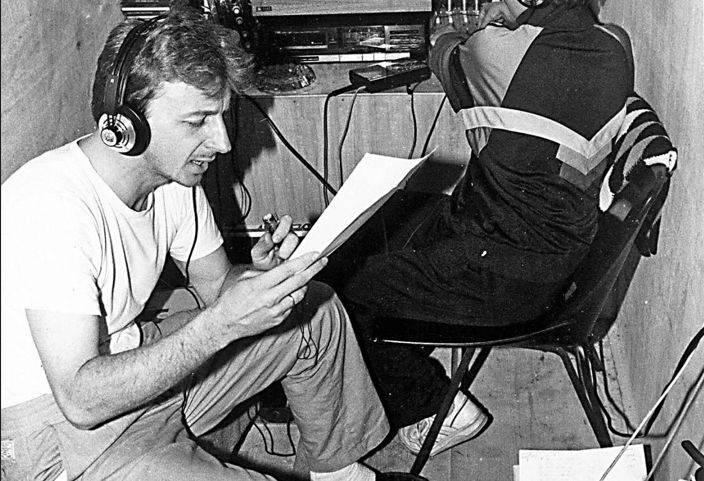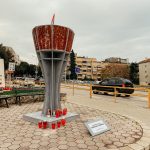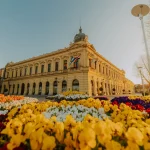November 17, 2023 – Sinisa Glavasevic went on to become the most recognisable voice of the city. The city that is us.
After primary and secondary school, he graduated from the Faculty of Philosophy in Sarajevo and worked in schools in Lovas and Borovo naselje near Vukovar. He was an editor for the pre-war Radio Vukovar and continued to report from the besieged city for the whole duration of the Serbian aggression against Croatia. Sinisa Glavasevic was the voice of hope, faith, and community in the most difficult times. His reports were made up of not only facts and news but stories, essays, and words of reassurance and inspiration. He was not afraid to call out the Croatian Parliament when he felt abandoned. His Optužnica, based on Émile Zola’s J’accuse, might not have made it through the censorship of the national radio, but it was broadcast on Zagreb’s 101.
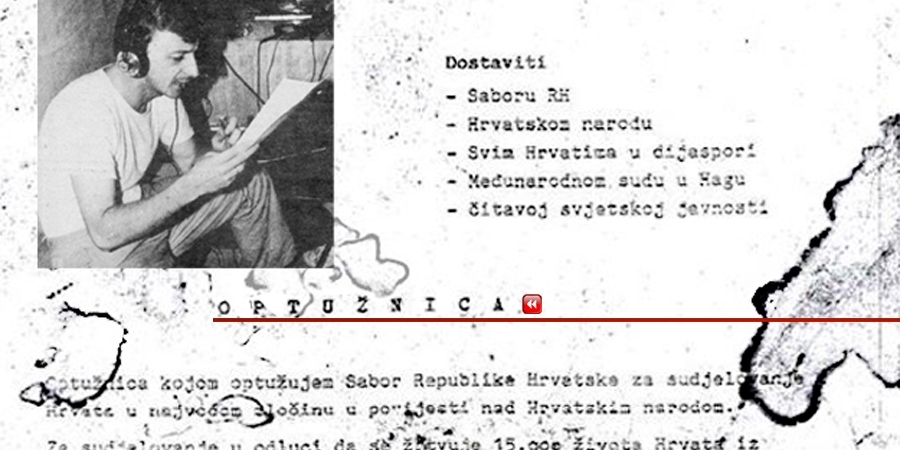
Hrvatski Radio Vukovar
On 5 November 32 years ago, his 31st birthday, while entering the hospital where he went to collect the latest reports on the wounded civilians and volunteers, he was injured by a shell fragment and remained under treatment in the Vukovar hospital. He kept reporting from the hospital and sent his last report on November 18, 1991. On the night of November 19-20, all traces of him were lost. Sinisa Glavasevic and the other wounded from the hospital were brutally murdered at the Ovčara camp for Croatian prisoners. His body was buried at the Zagreb Mirogoj cemetery next to his colleague, a radio technician, Branimir Polovina, who was also killed at Ovčara.
His warm human stories were collected into a book and published posthumously in 1992 under the title Stories from Vukovar. The book has been translated into German, English, and two editions in Esperanto. 24Sata also republished it in 2011. His stories inspired other works of art, such as documentaries and theatre plays. In Vukovar, one of the primary schools carries his name, and his two busts watch over the school and the building of Hrvatski Radio Vukovar.
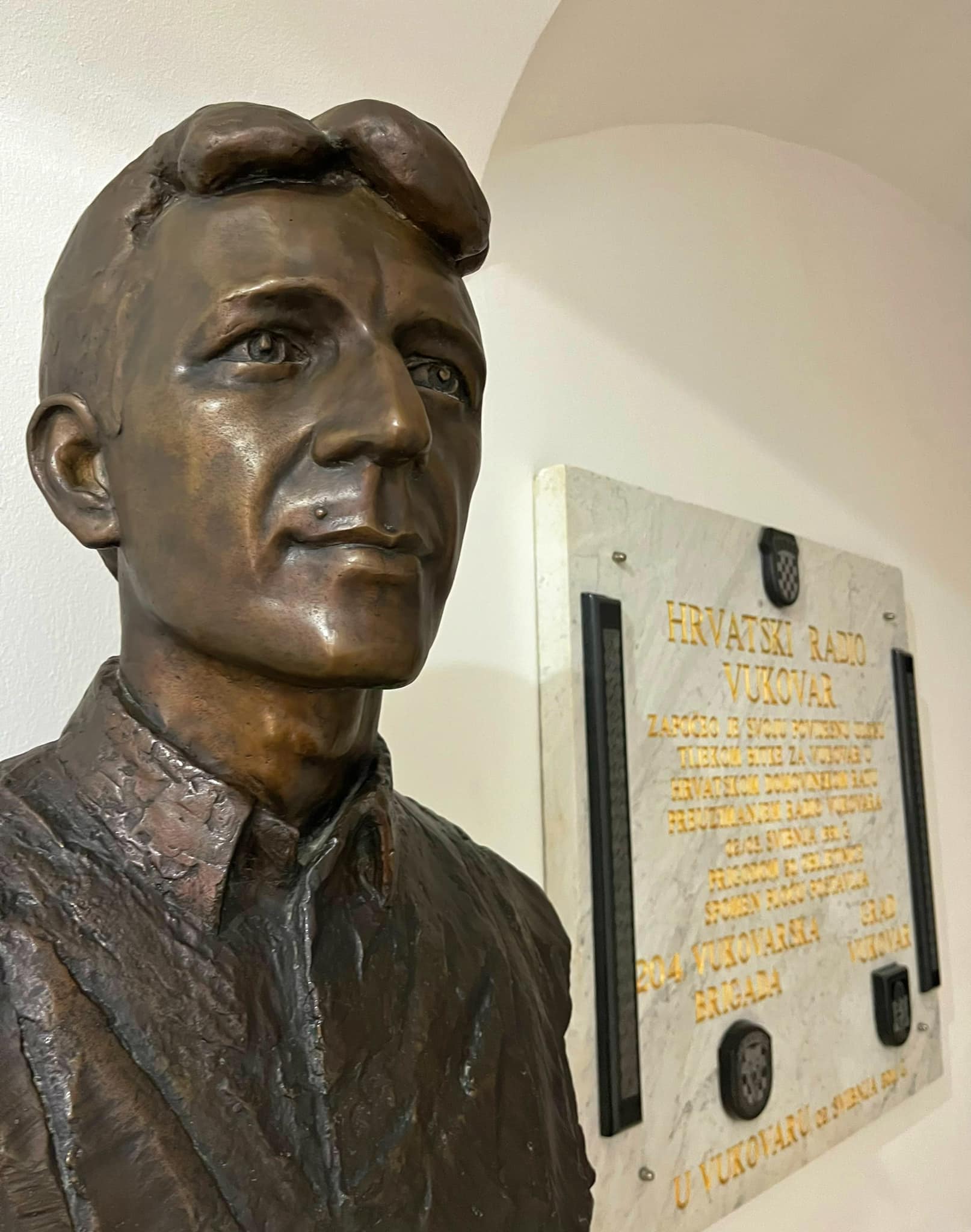
We spoke to Robert Rac, the director of Hrvatski Radio Vukovar, who shared his views on Sinisa Glavasevic’s legacy. The foundations of the work of fifteen employees of today’s Radio, he says, are those set by Sinisa Glavasevic and his colleagues, who were also tragically taken away by the war. His legacy lives on in the journalistic integrity they all share, with the single goal of sharing the truth above everything else. And his words found a way to not only live on in us but in actual tapes found in the ruins of the Radio’s building in Vukovar. During the siege, the building was constantly shelled and was largely destroyed. Some of Sinisa’s tapes, however, fell through the cracks into the basement, where a citizen found them while looking for something, anything of value left in the fallen city to live off. Not knowing what they were or having the technology to find out, he decided to wrap them up in a plastic bag and store them in his attic. Upon the return of the Radio’s employees, they were stunned to find out that the tapes were preserved well enough and contained Sinisa’s reports, thoughts, and interviews. They are faithful witnesses of the time. They were digitalised and kept in the archive, and are now publicly available.
It was people like Sinisa Glavasevic who helped the civilians in the occupied city keep going, who reassured them and made them feel like they weren’t alone. He was the voice of the people, of the city, of hope. Let us carry on his legacy by sharing today’s words of Hrvatski Radio Vukovar, as well as the translation of his essay (translated by Marko Puljić, Saint Louis, USA).
Siniša was killed, but his voice lives on among us.
Editor, thanks for everything.
“Who will watch my city, my friends, who will carry Vukovar from the dark?”
Us. Because the city is us. (HRV)
A Story About the City
I refrain from searching for all justice, truth, I refrain from attempts to let ideals arrange my personal life, I refrain from everything that until yesterday I considered essential for some good beginning or good end.
I would possibly refrain from myself, but I cannot.
Because who will remain if we renounce ourselves and flee into our fears.
Who will inherit the city? Who will watch it for me, when I am gone, while I am searching in the trash heaps of the human spirit, while I am as it is alone, staggering without myself, wounded, tired, feverish, while my eyes begin to wax before my personal defeat.
Who will watch my city, my friends, who will carry Vukovar from the dark?
There aren’t shoulders stronger than mine or yours, and therefore if it isn’t too much for you, if there still remains in you a youthful whisper, join us.
Somebody has touched my parks, the benches that still have your names carved into them, that shadow that you gave it at the same moment, and received your first kiss – somebody has simply stolen it all, because how do you explain that not even a Shadow remains?
There isn’t that store window in which you admired your personal joys, there isn’t that movie theater in which you saw the saddest film, your past has been simply decimated and you have nothing.
You must build anew. First your roots, your past, and then your present, and then if you still have the strength, invest in the future. Do not be alone in the future.
Do not worry about the city, it has been with you all this time. Only hidden. So that the murderer cannot find it. The city – it is you.
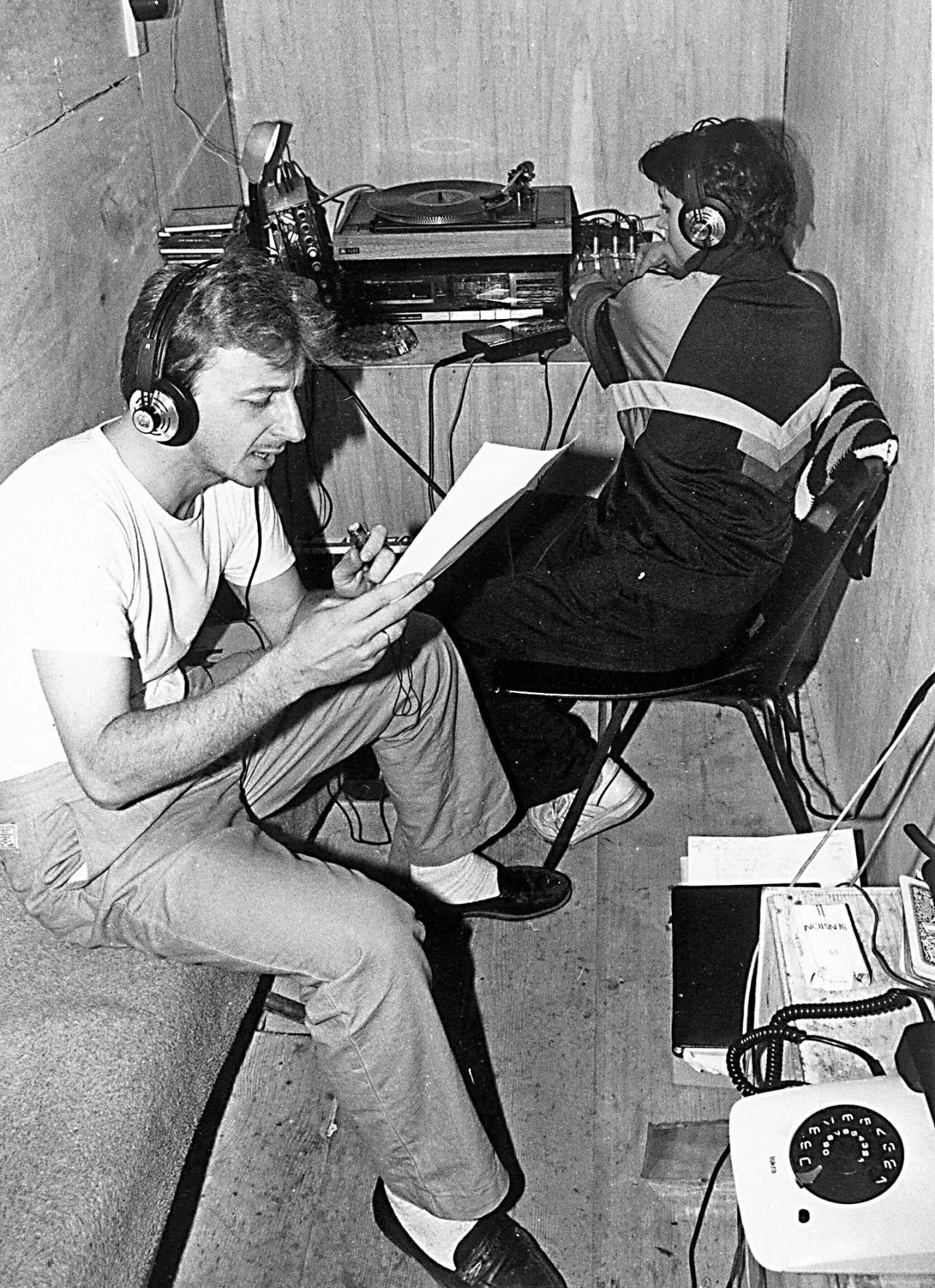
For more, make sure to check out our dedicated Lifestyle section.

